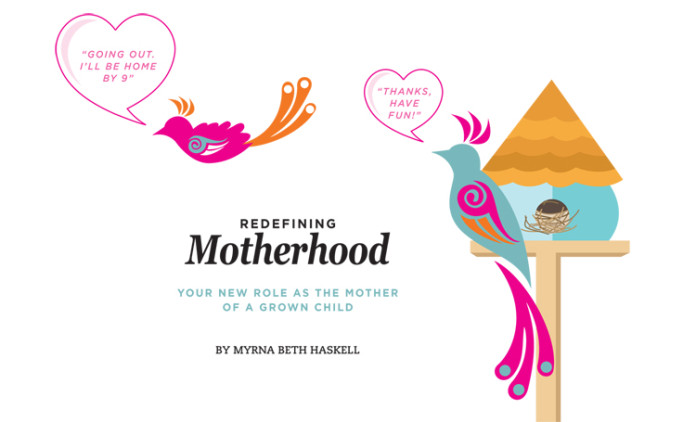My daughter and I were lounging by the fire pit talking about college, friendships, what holds a marriage together, and world peace. It suddenly hit me. The beautiful, young woman beside me –tanned from her summer job as a lifeguard and s’mores sandwich in hand – was all grown up. The funny thing? I realized I was listening differently. I genuinely craved her opinion on the big stuff. I also realized that I needed her, too. It was a revelation – an “aha moment.” I suppose I was also staring.
“Mom. What are you staring at?”
“I’m realizing you’re all grown up, and it’s amazing,” I answered.
“I mean, duh, Mom!”
There it was…the teenager still inhabiting part of her psyche. This was comforting, so I had to chuckle. I know she thinks I’m being oversentimental and goofy, but someday she’ll understand and experience this with her own child.
I found that I suddenly wanted all the answers. Would this be the beginning of a new type of relationship between us? Would there ever be a day when she wouldn’t need my wisdom? My role as her mother was changing, but I am still her mother after all.
What’s a girl to do?
According to Deborah Gilboa, MD, founder of AskDrG.com and author of Get the Behavior You want…Without Being the Parent you Hate (Demos Health, 2014), mothering changes with time. “Our kids all need parents no matter what their age.” She explains that the needs change, and that most adult children are looking more for respect and love, not for rescue or unsolicited guidance.
Mothering is an ever-changing job, indeed, and one of the most difficult ones, too. “As our kids grow and gain more autonomy, we often still expect to be in control of their lives in a way that they do not expect or want,” explains Gilboa. “The change here is to a constantly evolving and ongoing conversation about our expectations and our child’s, so that each person is treated respectfully and with clear boundaries,” she continues.
When moms have kids in college, things might get particularly difficult because college students are used to setting their own rules and living independently. However, rules associated with respect for one another, no matter what a child’s age, should be ongoing. Not long ago, I was visiting my parents the weekend of my 30th high school reunion. I told my mother where I was going and approximately what time I’d be home so that she wouldn’t worry. At this point in my life, I understood a mom’s worry quite well.
Gilboa advises, “Curfews don’t make as much sense if your child spends part of her time on her own, but it is totally reasonable to ask for (and receive) a call to let you know when you can expect that child home.”
Even if parents are still supporting a child financially (due to the cost of college or the burden of a new residence), there needs to be a transition plan in order for an adult child to become completely independent. “Phasing ourselves out of a caretaking role is the biggest change as we parent older kids and young adults,” Gilboa states.
There is a common goal amongst moms. Simply stated, that goal is to give our children wings and to set them free as individuals who can navigate the world solo as respected and useful members of society. However, you will still be Mom, forever and always; and this means you are there to lend an ear or a shoulder when needed, to be a perennial cheerleader, and to regularly remind your child how much she is loved.











